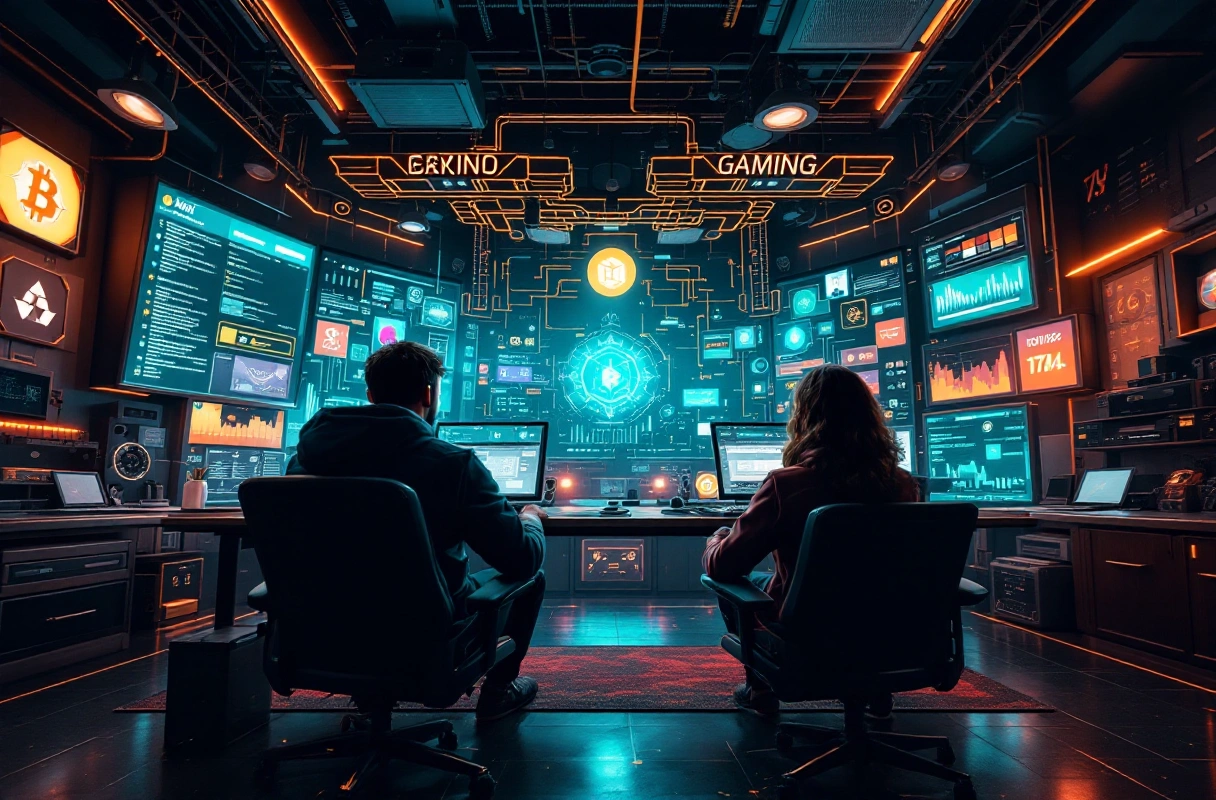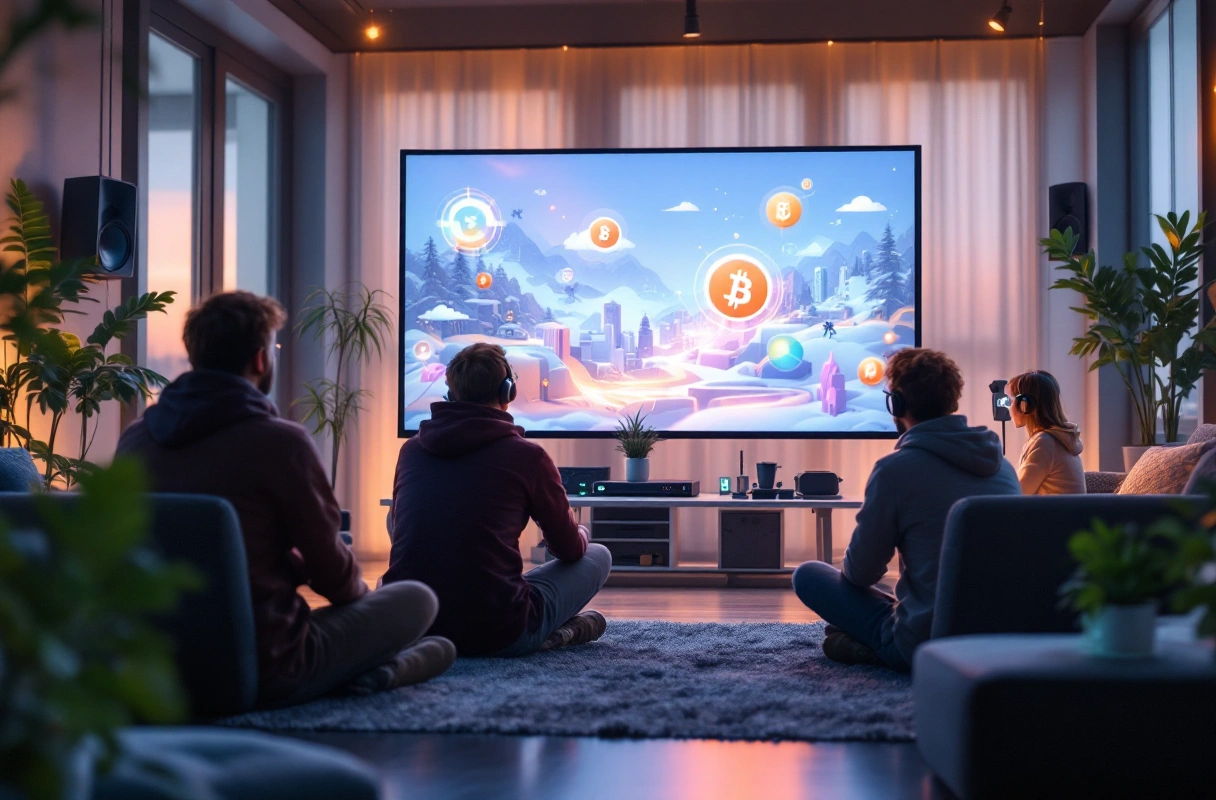

As the gaming industry continues to evolve, the integration of blockchain technology has emerged as a significant force shaping its future. The rise of web3 gaming and entertainment has opened up new avenues for developers, players, and investors alike, presenting both exciting opportunities and notable challenges. In this article, we will explore the transformative effects of blockchain on game development, examining how it is influencing gameplay mechanics, monetization strategies, and community engagement.

Blockchain is a decentralized digital ledger technology that enables secure and transparent transactions. In the context of gaming, it allows for the creation of unique in-game assets, decentralized marketplaces, and new ways for players to engage with the games they love. The incorporation of blockchain into gaming has led to the emergence of various trends, including metaverse gaming, NFT gaming, and play-to-earn models.
Web3 gaming and entertainment refers to the next generation of gaming that leverages blockchain technology to create decentralized platforms and experiences. This shift allows players to own their in-game assets, trade them freely, and participate in governance decisions within gaming communities. By using smart contracts, developers can create more complex and engaging gameplay mechanics that empower players in unprecedented ways.
The integration of blockchain into game development introduces several key features that redefine traditional gaming paradigms:

The opportunities presented by blockchain technology in game development are vast, offering both developers and players innovative ways to engage with games.
The play-to-earn model is one of the most compelling opportunities in web3 gaming. It allows players to earn real-world value through gameplay, whether by completing tasks, winning competitions, or trading in-game assets. This model has gained significant traction, particularly in developing regions where traditional employment opportunities may be limited.
Blockchain enables developers to create more engaging experiences through unique gameplay mechanics. For example, players can participate in decentralized finance (DeFi) systems within games, providing them with opportunities to stake their assets and earn rewards. This level of engagement fosters a sense of community and loyalty among players.
The rise of NFT gaming has revolutionized the way players interact with in-game items. Each asset can be tokenized and owned individually, allowing for true scarcity and uniqueness. Players can collect, trade, and even create their own NFTs, adding an extra layer of depth to the gaming experience.
Blockchain technology allows developers to explore new monetization strategies beyond traditional models. By incorporating NFTs and play-to-earn mechanics, developers can create sustainable revenue streams while providing players with value. This shift in monetization strategies can lead to a more equitable distribution of wealth within gaming ecosystems.

While the opportunities are exciting, the integration of blockchain into game development is not without its challenges. Developers must navigate a complex landscape filled with technical, regulatory, and community-related hurdles.
Developers must possess a deep understanding of blockchain technology to effectively implement it in their games. This includes knowledge of smart contracts, decentralized applications (dApps), and the various blockchain networks available. The technical complexity can be a barrier to entry for many traditional game developers.
The regulatory environment surrounding blockchain and cryptocurrency is still evolving. Developers must navigate a patchwork of regulations that can vary significantly by region. Issues such as player data protection, gambling laws, and taxation can complicate the development process and impact the viability of certain game mechanics.
For blockchain gaming to thrive, it must gain acceptance from both traditional gamers and the broader gaming community. There are misconceptions surrounding blockchain technology, particularly regarding its environmental impact and perceived complexity. Developers must work to educate their audience and build trust within the community.
Blockchain technology, while secure in many respects, is not immune to vulnerabilities. Smart contracts can contain bugs that lead to exploits, resulting in the loss of assets. Developers must prioritize security and conduct thorough audits of their smart contracts to protect players and maintain the integrity of their games.
Decentralized gaming is poised to play a significant role in the future of game development. By removing centralized control, players can enjoy a more democratic gaming experience. This shift empowers players to shape the games they play and fosters a sense of ownership and investment in their gaming experiences.
Decentralized gaming encourages the development of communities where players can collaborate, share resources, and support one another. This sense of community can lead to the creation of vibrant ecosystems where players feel valued and engaged. Developers can facilitate these communities through governance mechanisms and incentives that reward participation.
The future of gaming may see the rise of interoperable assets that can be used across multiple games. This would enhance the value of in-game items and create a more interconnected gaming experience. Developers must consider how to design their games to support interoperability and encourage collaboration between different gaming platforms.
As the landscape of web3 gaming and entertainment continues to evolve, developers must stay informed about emerging trends and technologies. Engaging with the community and understanding player needs will be essential for success in this rapidly changing environment.
To successfully navigate the complexities of blockchain game development, developers should consider the following strategies:
The future of gaming lies in collaboration between developers, players, and communities. By harnessing the power of blockchain technology, the gaming industry can create experiences that are not only entertaining but also equitable and sustainable.
As web3 gaming and entertainment continue to develop, the intersection of these two fields will create exciting new possibilities. The integration of blockchain technology into interactive entertainment will lead to innovative storytelling, enhanced player experiences, and a more vibrant gaming ecosystem.
Blockchain’s impact on game development is transforming digital entertainment into something far more immersive, participatory, and rewarding. As web3 gaming continues to evolve, those who understand its opportunities—and challenges—will be best positioned to create value, build communities, and shape the future of this rapidly growing industry.
At Outer Edge, we’re all about expanding horizons by connecting innovators where the action is happening. Whether through gatherings that spark collaboration, media that amplifies frontier voices, or communities exploring what’s next, we aim to help you dive deeper into the opportunities of web3 gaming and entertainment. Join us, and let’s shape the future of play together.
Join more than 40k+ investors, dreamers, builders & experts in getting exclusive weekly content and access to the top 1% of Web3, Blockchain, and AI globally!